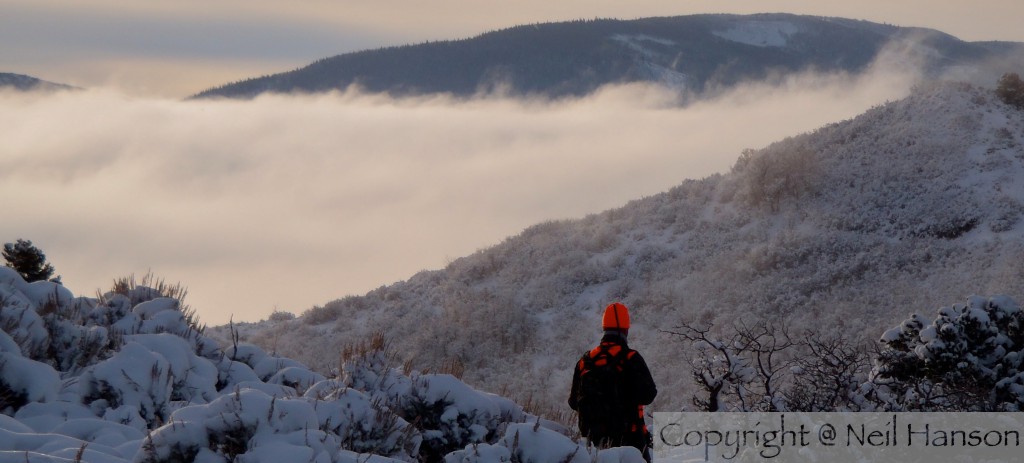Part 2 – Fragility
It’s mid-November, a time when I disappear into the woods for a while each year. First for several days on the western slope of the Rockies hunting elk with my son, then into the Kansas prairie for a couple weeks of hunting whitetail deer where the prairie and the timber meet.
Hunting is important to me for many reasons. From a purely utilitarian perspective, it often puts meat in our freezer – meat that helps to feed us and keep us healthy. When it does this, a flame of life is extinguished at the other end of the arrow. From this very narrow utilitarian point of view, hunting nourishes a very healthy respect for the fragility and interdependence of the life I lead and the life that surrounds me.
As a predator, I put significant energy into carefully stalking or ambushing my prey. I study the signs the prey leaves on the land, to learn about how he’s using and moving through a space. I work hard to mask my scent, hide my sign, and make myself hard to see or sense. Every movement and action of a deer speaks to his instinctive understanding of how vulnerable he is, and I’m only successful as a hunter if I can find and exploit one of his vulnerabilities.
When I’m successful as a hunter, in the blink of an eye or a few short heartbeats, life flows away from the deer at the other end of the arrow. From his loss I gain sustenance and grow stronger. In a more fragile or vulnerable time, the life of the deer might make the difference between life and death for me or my family. While such is not the case, it’s good discipline for me to see this connective tissue of interdependence each time I go to the field in search of prey.

Usually when I hunt, there’s significant time alone for me in the field, whether it’s sleeping, stalking, or sitting and waiting. While such time alone is good for the soul, in less easy and comfortable times, such time alone would also create risk for the hunter.
Like a candle in the wind, life often dangles precariously at the end of a wick, depending on a continued supply of wax to keep the flame burning. For both the hunter and the prey, it’s a time to recognize and respect the fragility of life. A puff of wind, a wrong step, a foolishly exposed vulnerability, and the flame goes out.
We live a life of comfort and luxury unprecedented in human history. We simply go to the store or a diner and pick up whatever we need to eat. We order the clothes we wear from our keyboard. We spend increasing portions of our resource on separating ourselves from any dangers that life might drop in our path, which only further insulates us from the nourishment to our hearts and souls that the dangerous edges of life offer us.
Sometimes it’s windy out there, and when the wind blows, some flames are extinguished. It’s folly to try and insulate ourselves from every wind that might blow, and every danger that life offers. We need to walk in the woods more often, and see the ebb and flow of life around us. When we eat a meal, we need to understand clearly and deeply that on the other end of that meal, a flame of life was extinguished so that our flame might grow brighter.

Respect. Respect for the fragility of life. Respect for the gift of life. Honor the gift with a life well-lived.

